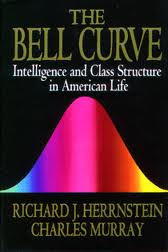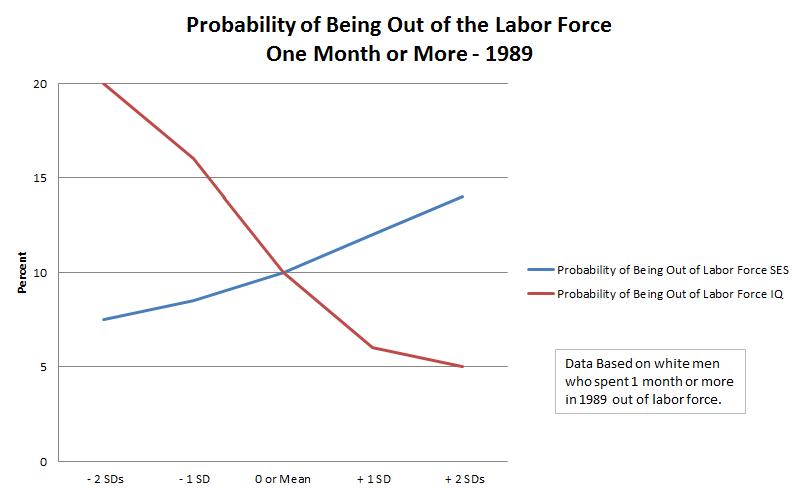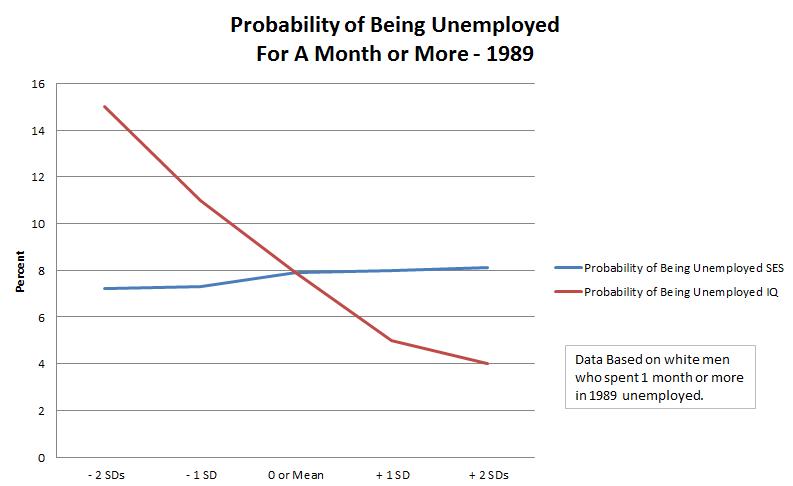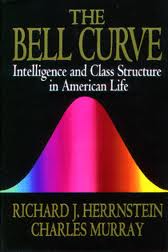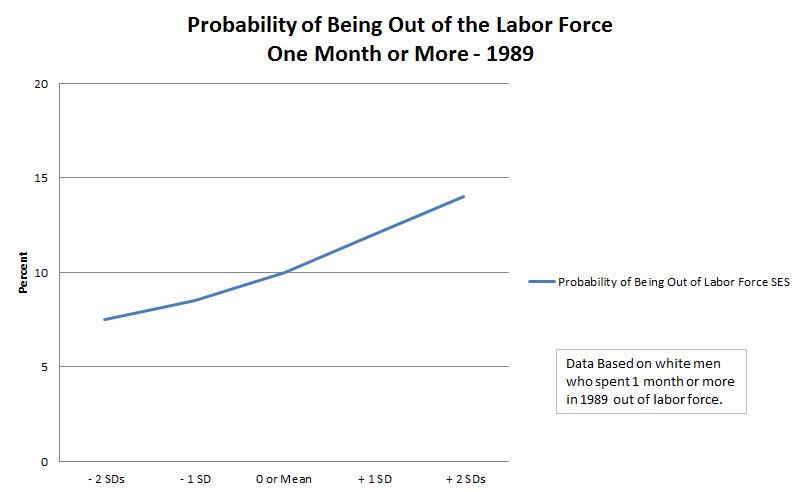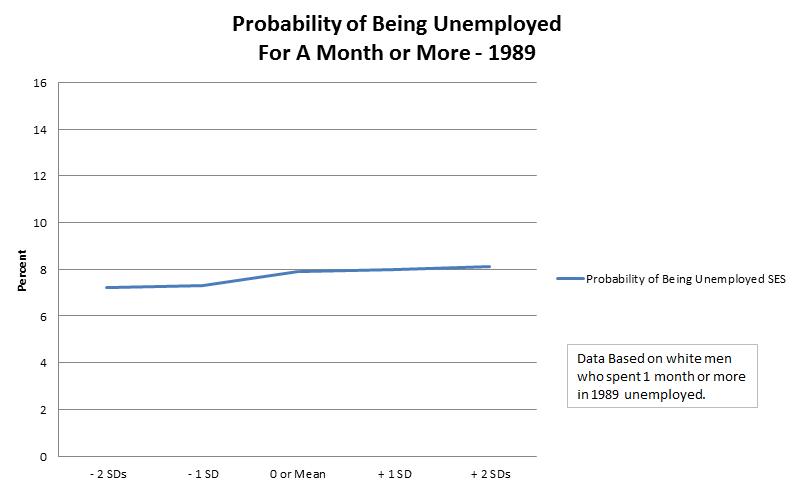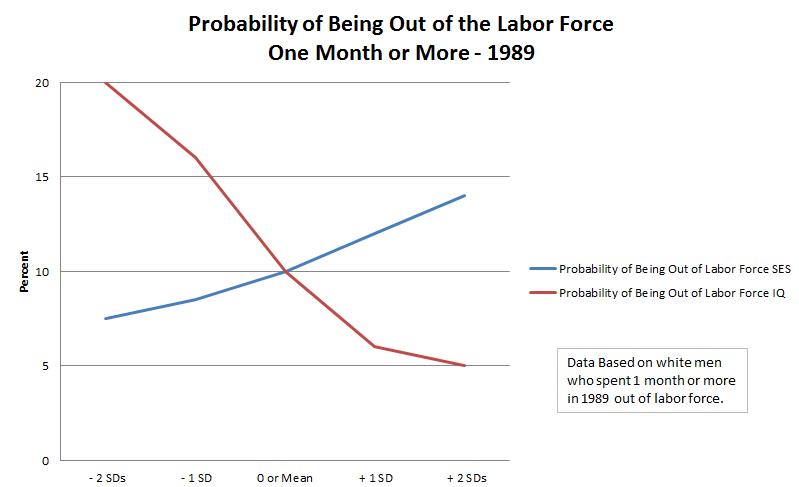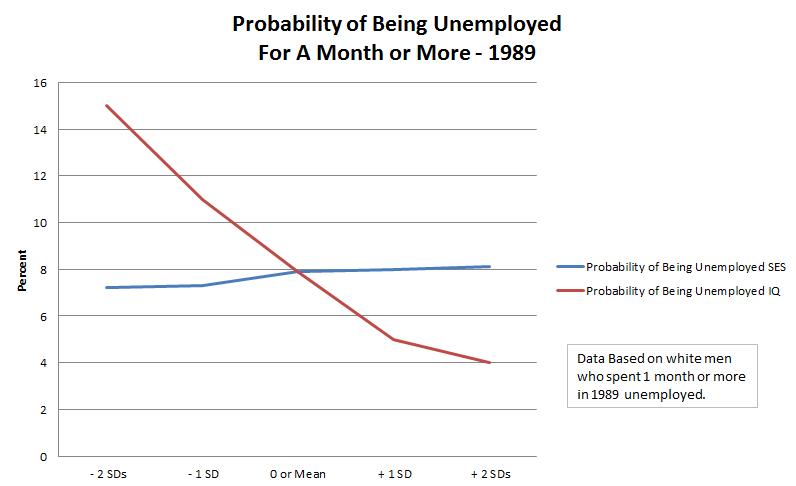The Impact Of IQ On Employment:
In previous posts I’ve explored the impact that socioeconomic status has on various measurements in society. For example, we’ve seen that poverty, education and employment, among other measures, are influenced by the socioeconomic status of the family unit. In fact, I’ve gone through the whole list of factors explored by the authors of the book, “The Bell Curve” and explored just that impact.
But is that the whole story?
The book presents a second half, another “look” if you will. And that “other look” is the impact of IQ on these various outcomes. This post will deal with the impact of IQ on employment.
Probability of Being Out of the Labor Force
One of the measures of the employment prospects of an individual is being active in the labor force; are you looking for a job. I’ve already presented the data that explains an unexpected result. Namely, that as the socioeconomic status of the family increases, so does the probability that a white male in the study will leave the labor force for at least a month in 1989.
However, the authors asked another question, “What if age, socioeconomic status and race are held constant, what happens then? What role does IQ play in labor force participation?
It’s pretty straightforward. Those of us scoring the lowest on IQ tests are predicted to leave the labor force at a 20% clip. Those of us scoring in the 2nd standard deviation? We’re leaving the labor force at only a 5% rate.
Whereas socioeconomic status seems to play a “reversed role” here, IQ is a dramatic predictor in labor force participation.
Probability of Being Unemployed
The second measurement of employment prospects is the rate at which folks find themselves unemployed. Unemployed is different than being out of the labor force, of course, because being unemployed implicitly acknowledges that an individual is looking for work.
Again, I’ve peeked at the impact that the socioeconomic status of the family has on the unemployment prospects of an individual, and the results are in; almost none. About 1% separates the poorest families from the wealthiest.
And the impact of IQ?
Again, powerful.
Those folks scoring lowest in IQ tests are predicted to have a 16% chance of being unemployed for a month or more in 1989. Those scoring the highest? 4%. In other words, those scoring low on IQ tests have a 400% better chance of being unemployed than those scoring on the high end on those same tests.
Being rich or poor has little impact. Scoring well or not has a massive impact.

